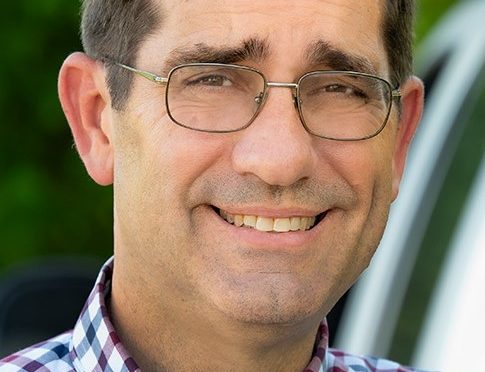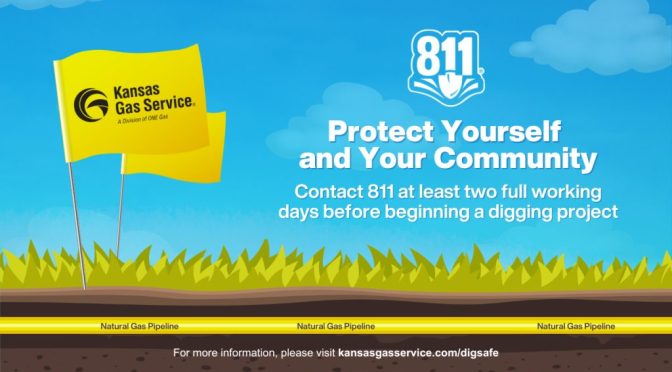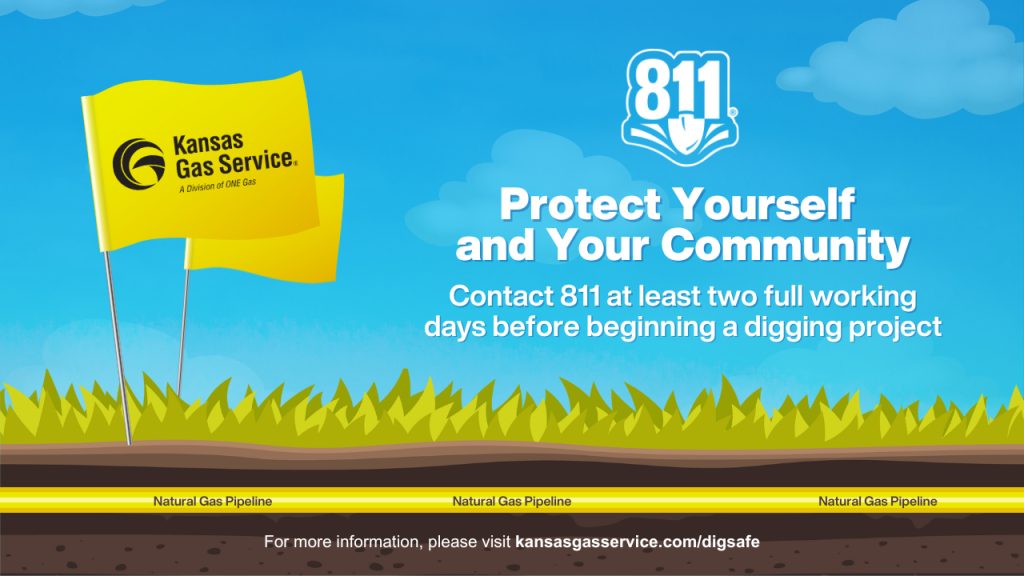Governor Kelly Announces $40.5M
for 27 Local Bridge Projects
TOPEKA – Governor Laura Kelly and Kansas Department of Transportation Secretary Calvin Reed today announced that 27 local and off-system bridge projects across Kansas will receive a combined total of $40.5 million in state and federal funding as part of two local bridge improvement programs.
“By funding bridge projects across our state, we are directly investing in the future of our communities,” Governor Laura Kelly said. “Repairing and replacing aging bridges ensures people and commerce can move safely and efficiently throughout Kansas.”
Combined with matching funds from the awarded cities and counties, the total project value is over $46.5 million. By reshaping the local bridge programs, the Kansas Department of Transportation (KDOT) more than doubled its annual funding as part of the existing Eisenhower Legacy Transportation Program (IKE).
There are more than 19,000 bridges on local road systems across Kansas, and over 5,000 of those bridges need updates to meet today’s standards.
“The Eisenhower Legacy Transportation Program has allowed us to enhance our commitment to local bridges,” Secretary Reed said. “This is about more than just infrastructure; it’s about strengthening the vital connections that keep our towns and cities thriving.”
KDOT will award about $20 million through the Kansas Local Bridge Improvement Program (KLBIP) in Fiscal Year 2026. The funds will go to 11 bridge replacement projects, and an additional four deficient bridges will be permanently removed from local systems. The KLBIP, established in 2015, provides funds to local public authorities for the replacement or rehabilitation of deficient city and county-owned bridges. The program also allows cities and counties to be awarded additional funds for the removal of deficient bridges.
KDOT will award $20.5 million through the Off-System Bridge program (OSB) in Fiscal Year 2027 to fund 16 projects across the state. The OSB program was established to comply with federal requirements to use a specific portion of federal funds for bridges not on the federal-aid system. The funding is a combination of federal Surface Transportation Block Grant funds, Bridge Program Funds, and state funds.
The OSB and KLBIP programs are used for city and county bridges in need of replacement or repair that are not on the state highway system. Funds for both programs are awarded through an application process and, in most cases, require a local contribution. KDOT uses selection criteria that consider items such as bridge condition, detour length, inability to carry legal loads, and past project history.
For this cycle of the local bridge programs, KDOT received a combined total of 163 applications requesting $189.3 million.
Below is a list of the recipients and project locations for the KLBIP and OSB programs.
2026 Kansas Local Bridge Improvement Program Projects
|
Local Government Agency
|
Location
|
Local Contribution
|
Local % Match
|
KDOT Match Funds
|
Funds for Bridge Removal
|
Total Funds Awarded
|
|
City of Topeka
|
SW 57th Street over S. branch Shunganunga Creek 0.2 miles east of US-75
|
$528,758
|
20%
|
$1,200,000
|
$ –
|
$1,200,000
|
|
Edwards County
|
20 Road (RS 1491) over a tributary to Little Coon Creek 7.0 miles north of Offerle
|
$65,521
|
0%
|
$900,000
|
$ –
|
$900,000
|
|
Ellis County
|
125th Avenue over the Saline River 12.5 miles north and 0.5 miles east of Ellis
|
$757,178
|
15%
|
$4,300,000
|
$60,900
|
$4,360,900
|
|
Gray County
|
FF Road over Crooked Creek tributary 6.0 miles south and 0.8 miles east of Haggard
|
$110,459
|
5%
|
$750,000
|
$ –
|
$750,000
|
|
Greenwood County
|
100th St over Fall River tributary 3.0 miles east and 3.2 miles north of Climax
|
$142,509
|
5%
|
$1,200,000
|
$ –
|
$1,200,000
|
|
Harvey County
|
SW 14th St over Sand Creek 1.9 miles west of I-135 in Newton
|
$1,057,558
|
15%
|
$2,550,000
|
$ –
|
$2,550,000
|
|
Lincoln County
|
E Kiowa Road over Wolf Creek 4.5 miles west of Sylvan Grove
|
$31,902
|
0%
|
$1,970,000
|
$50,000
|
$2,020,000
|
|
Neosho County
|
Veteran’s road over the Neosho River 1.0 miles east and 2.6 miles south of St. Paul
|
$840,859
|
15%
|
$3,065,000
|
$ –
|
$3,065,000
|
|
Rawlins County
|
Road 16.5 over Little Beaver Creek 0.4 miles north of Blakeman
|
$95,552
|
0%
|
$2,300,000
|
$ –
|
$2,300,000
|
|
Rooks County
|
J Road over Sand Creek 8.2 miles west of Stockton
|
$57,616
|
5%
|
$1,100,000
|
$52,200
|
$1,152,200
|
|
Trego County
|
380th Avenue over drainage ditch 1.4 miles south and 13.0 miles east of Trego Center
|
$40,951
|
0%
|
$500,000
|
$ –
|
$500,000
|
|
|
|
$3,728,863
|
|
$19,835,000
|
$163,100
|
$19,998,100
|
2027 Off-System Bridge Program Project Recommendations
|
Local Government Agency
|
Bridge Location
|
Local Contribution
|
Local Cost %
|
Maximum Funds Awarded (covering 100% of Construction and CE)
|
|
Doniphan County
|
Oxide Road over an abandoned CRI railroad immediately south of US-36 2.5 miles east of Troy
|
$82,994
|
6.80%
|
$1,250,000
|
|
Bourbon County
|
Jayhawk Road over tributary to Marmaton River 2.5 miles South and 1.9 miles West of Fort Scott
|
$87,362
|
8.90%
|
$1,000,000
|
|
Butler County
|
SW 80th Street over the Walnut River located 3.6 miles North and 2.0 miles East of Augusta
|
$251,537
|
11.20%
|
$2,000,000
|
|
Chase County
|
YY Road over Jacob Creek tributary 4.7 miles South and 1.0 mile East of Saffordville
|
$133,227
|
11.20%
|
$1,100,000
|
|
Cloud County
|
Wagon Road over Grave Creek 2.8 miles North and 6.0 miles East of Jamestown
|
$92,822
|
7.50%
|
$1,300,000
|
|
Cowley County
|
155th Road over Silver Creek 9.6 miles East and 4.0 miles North of Arkansas City
|
$114,663
|
5.60%
|
$2,000,000
|
|
Geary County
|
McNeal Road over East Branch Humboldt Creek 5.0 miles South and 12.0 miles East of Junction City
|
$104,834
|
12.50%
|
$800,000
|
|
Harper County
|
SE 120 Avenue over Bluff Creek 3.0 miles East and 0.4 miles South of Bluff City
|
$416,269
|
17.20%
|
$2,000,000
|
|
Kingman County
|
SE 100 Street over Rose Bud Creek 3.2 miles North and 0.2 miles West of Rago
|
$76,442
|
10.30%
|
$750,000
|
|
Linn County
|
E 850th Road over Little Sugar Creek on the north edge of Mound City 0.6 miles East of K-7
|
$614,308
|
23.50%
|
$2,000,000
|
|
Osage County
|
S Fisher Road over Plum Creek tributary 1.7 miles South and 1.5 miles West of Burlingame
|
$124,491
|
11.70%
|
$1,000,000
|
|
Osborne County
|
S 55th Road over South Fork of the Solomon River 1.0 miles South and 5.5 miles East of Osborne
|
$65,521
|
4.30%
|
$1,600,000
|
|
Ottawa County
|
Frontier Road over Sand Creek 0.5 miles North of Bennington
|
$68,252
|
7.80%
|
$900,000
|
|
Phillips County
|
W 700 Road over Starvation Creek 0.5 miles North of Stuttgart
|
$76,442
|
6.80%
|
$1,200,000
|
|
Riley County
|
Lasita Road over Timber Creek 1.0 mile North, 6.0 miles West of city of Riley
|
$66,614
|
11.10%
|
$600,000
|
|
Stafford County
|
SE 60 Street over the North Fork Ninnescah River, 6.0 miles South and 0.4 miles West of Stafford
|
$76,442
|
7.90%
|
$1,000,000
|
|
|
$2,452,220
|
|
$20,500,000
|
More information about KDOT’s bridge program is available on its webpage on the KDOT website.
###
|









